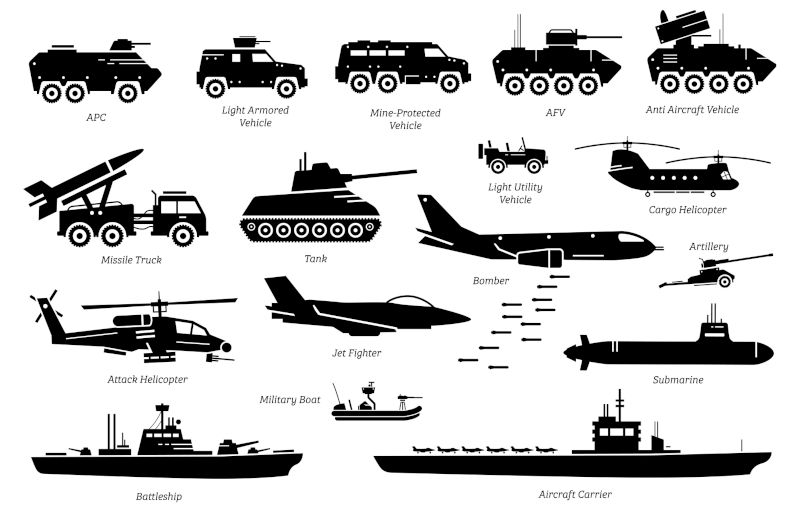Weapons-makers set to gain more influence in defence operations
April 14, 2023
Multinational weapons companies could end up more deeply integrated into Australian military operations if Defence gets its way with legislative reforms. This comes on top of significant public unease about Australia’s ability to act independently as a result of AUKUS.
Activity in the defence domain has reached peak overload. On top of AUKUS and the submarines, the high-level nuclear waste dump, the Defence Strategic Review, and a slew of multi-billion-dollar arms procurements, the Defence Department is also undertaking consequential reform of the Defence Act 1903 and related legislation. In March, Defence published a consultation paper on the reforms calling for public feedback. The deadline for submissions is Friday 21 April.
Among other things, the reform initiatives foreshadow a more deeply integrated involvement by the globally dominant US arms industry in Australia’s defence and national security establishment, including military operations, especially in the modern ‘warfighting’ domains of cyber and space. This is a profoundly consequential proposition that demands careful consideration.
Notice of the intended reforms was quietly released by the defence portfolio’s junior minister, Matt Thistlethwaite, just days before the Albanese-Biden-Sunak AUKUS extravaganza in San Diego. Saturation media coverage and ongoing analysis of that event has kept the intended reform of Australia’s defence legislation out of the spotlight. This confluence in timing was likely intentional. As a result, much of the limited time granted to the public to consider and prepare submissions has already elapsed.
The public needs to pay attention now because the bipartisan-lockstep nature of defence ‘debate’ in Australia makes it probable that once the legislative amendments hit parliament they will zip through both houses into legislative reality with far less scrutiny than they demand.
The government says legislative reform is necessary to ‘better position the Australian Defence Force (ADF) as an agile, integrated, warfighting enterprise’. The reforms are also intended to create a ‘technology-neutral’ legislative framework.
The consultation paper outlines three key initiatives:
- support the full range of military activities and capabilities required to defend Australia and its national interests
- design the law for seamless interoperability with international allies and partners
- improve the security of Australia’s military capabilities, tangible and intangible.
The terms ‘integrated’, ‘seamless interoperability’, and ‘interchangeability’ appear throughout. The word ‘partner’ is used frequently and is undefined. It is often unclear to which type of entity it refers: foreign governments, foreign militaries, foreign intelligence services, or local or foreign arms industry entities. These distinctions are important, especially in a public consultation document, and the fact that they often aren’t clear creates considerable ambiguity.
Defence poses ten consultation questions for consideration. An important one is hinted at and needs to be made plain: What does the public think about the deeper integration of profit-making multinational weapons companies into Australian military operations across the breadth of operational domains, including cyber and space?
The AUKUS agreement is causing significant public unease about Australia’s ability to act independently of our major allies, and the loss of sovereignty this entails. Two former prime ministers have also expressed publicly their concerns about this. The shape of the proposed legislative reforms, the ambiguities in the consultation paper, and the muted manner of the document’s release add further cause for concern.
Worth adding in this futuristic context is the rapid development and significant funding of lethal autonomous weapons, occurring largely out of public view. (For the uninitiated, lethal autonomous weapons, known colloquially as ‘ killer robots’, require no meaningful human involvement in the ‘kill chain’.) As yet, there is no international legal framework regulating their development or use. Such is the future we face.
If the above is not warning enough, we need only reflect on the US government’s outsourcing to defence contractors (and here) of parts of its morally bankrupt drone assassination program which has killed large numbers of civilians, including children, and instilled an abiding fear of clear skies in the populations of multiple countries. Pine Gap, part of the United States’ global surveillance network, has played a facilitative role in these killings.
This surely provides all the evidence we need that more time – and a vastly more transparent and genuine process of engagement – is needed from Defence for the public to consider and respond to its proposed initiatives for reform.
Download Defence’s consultation paper. Lodge your submission by 21 April.


